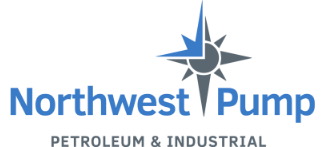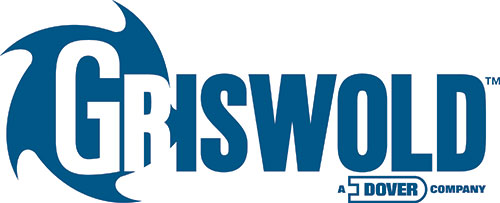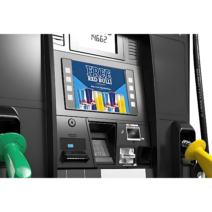What are ANSI Pumps, and Why Should You Care?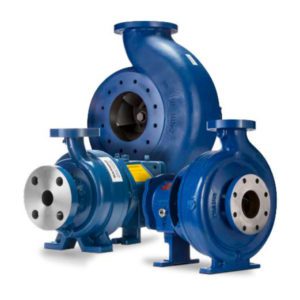
Beyond the type of pump, there are several ways to classify pumps further. One such specification is whether a centrifugal pump follows ANSI specifications (also referred to as ASME B73.1). ANSI pumps refer to a specific set of standards created back in the 1970s. However, the B73 committee updated the regulations as recently as 2016. These standards mean that these pumps are interchangeable and optimized for easier maintenance and reliability in mind. A facility with ANSI pumps does not have to worry about adjusting the motor, the location of the pumping system, or the coupling mechanisms- even if a facility changes manufacturers.
The ANSI pumps are separated into three groups depending on size. There are currently over 27 size variations available depending on one’s needs. Whether a facility chooses the tiniest specification or the largest, all ANSI pumps are rated for 300psig at 300°F or 149°C. Additionally, while these standards originated for oil & gas refining, they have a broad scope for usage in food production, textiles, chemical processing, and pulp & paper industries, to name a few. However, despite their ability to contain some solids (depending on impeller design), these pumps will not work for thick, viscous liquids. Another benefit to ANSI specifications is that these pumps will be more widely available because of their abilities. Not only does this make ANSI pumps cost less, but it also makes finding parts for repairs that much easier.
When it comes to ANSI pumps, Northwest Pump prefers utilizing PSG Griswold’s expertise. Griswold ensures their quality standards with not only certified highest-quality parts but also a five-year warranty.
What other options are available?
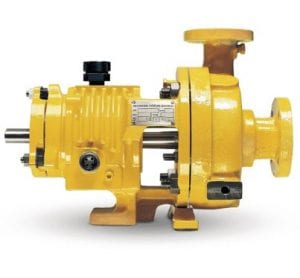 While these pumps are certainly beneficial for some situations, they are not ideal for every pumping situation. Instead of choosing from the above ANSI specifications, a facility might desire a more robust approach. One such option may be Blackmer Centrifugal. Formerly System One, Blackmer makes pumps with durability in mind, with their average pumps rated for up 650°F/343°C and beyond. Additionally, the design of Blackmer Centrifugal means that the seals & bearings are better protected, ensuring a longer life for pumps that see heavier duty work than others. These pumps are optimal for mining operations, water & wastewater handling, and chemical processes.
While these pumps are certainly beneficial for some situations, they are not ideal for every pumping situation. Instead of choosing from the above ANSI specifications, a facility might desire a more robust approach. One such option may be Blackmer Centrifugal. Formerly System One, Blackmer makes pumps with durability in mind, with their average pumps rated for up 650°F/343°C and beyond. Additionally, the design of Blackmer Centrifugal means that the seals & bearings are better protected, ensuring a longer life for pumps that see heavier duty work than others. These pumps are optimal for mining operations, water & wastewater handling, and chemical processes.
What Pump is Right for You?
Whether it is the main producer or a supporting feature, a facility needs an optimized pump for its needs. So, knowing how a pump can serve a need is essential. When choosing a pump, anyone should know how the specifications impact the safety, the maintenance requirements, and the fluid contained inside the pump. Between Blackmer & Griswold, here is how the two stack up. When it comes to safety, both will protect employees and the facility, however with high temperatures or harsher applications, Blackmer Centrifugal will probably rank higher. Maintenance for Griswold will be far less invasive than Blackmer. While the fluid will depend on the needs of the facility when it comes to costs, both will be worth it, Griswold will be more accessible due to their product line.
Want to see if an ANSI pump is right for you? Reach out and let’s start the conversation at sales@nwpump.com, or call us at 1-800-452-PUMP. Need maintenance on your ANSI pump? Call us at 1-866-577-2755 to schedule an appointment or make a request here.
